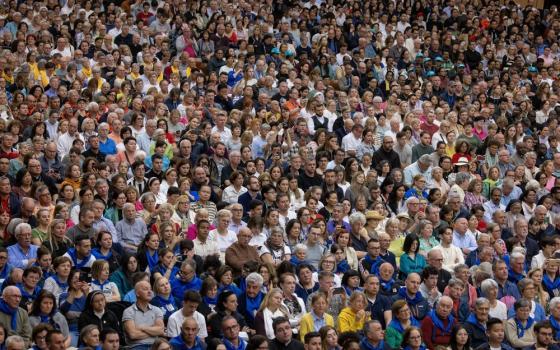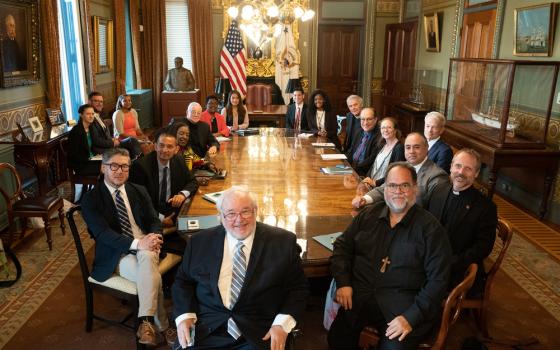

“What did you go out to see?” (Luke 7: 25).
Is 54:1-10; Luke 7:24-30
While the Gospels assigned to Advent normally get the most attention, we should not miss the rich, poetic portions of the Prophet Isaiah included in the Lectionary. Chapters 40-55 cover the period in history when the Jews returned from exile and reestablished their homeland, rebuilding the temple and the city of Jerusalem. Chastened by years of hardship, the people recommit to their covenant with Yahweh and to obedience to the Law. Their restoration is a time of profound joy and gratitude, described as a desert in bloom, a marriage healed and a time of celebration. Past sins are forgiven and forgotten. God’s love is renewed and everlasting:
Though the mountains leave their place
and the hills be shaken,
My love shall never leave you
nor my covenant of peace be shaken,
says the LORD, who has mercy on you. (Isa 54:9-10).
This promised fulfillment became the context for the preaching of John the Baptist. The people were invited to leave behind their sinfulness in the waters of baptism and to seek God’s forgiveness and healing. Judgment would fall on those who failed to repent, but salvation was being offered to anyone who recommitted to a life of holiness.
Jesus also saw this moment as decisive for the restoration of Israel. “Repent, hear Good News, the Kingdom of God is at hand,” was the invitation to enter the time of grace and mercy, the start of the New Creation. After his own baptism in the Jordan, Jesus went into the desert to recapitulate the history of Israel from the Exodus through the desert temptations and entry into the promised land. He then began his ministry with a burst of healings and exorcisms to signal the time of fulfillment.
Today’s Gospel shows Jesus’ regard for the heroic John the Baptist, who has given his life as the bridge between the first Covenant under the Law and the Prophets and the New Covenant of Grace and Mercy. As precursor, he has carried a message he himself does not fully understand, leading up to the hand-off to Jesus. His final suffering will be to wonder if he has succeeded at all, entering eternity headless, a sign of his total surrender in faith. He is, Jesus says, the greatest person who ever lived up to that time because of his role in salvation history. Only in death will he see the complete fulfillment of God’s plan in Jesus.
The Christmas story is incomplete without this context. What Isaiah foresaw and John preached was nothing less than God entering the world in the person of Jesus, the new Adam, the Pioneer of our salvation, the firstborn from the dead and our elder brother, who reveals the goal of history to usher humanity into life with God. The Incarnation is the fulfilment of Creation itself.
We are meant to be lifted up into this mystery when we celebrate Christmas, for it is about us, our destiny with God. For now, we are all precursors, like John, halfway home, bearing a mystery we do not understand but believe, bridging our fallen natures to the life of grace. We take our first steps toward eternity by welcoming Jesus and uniting ourselves to him in love. This is the first gift of Christmas and the joy of the Gospel.
Advertisement










